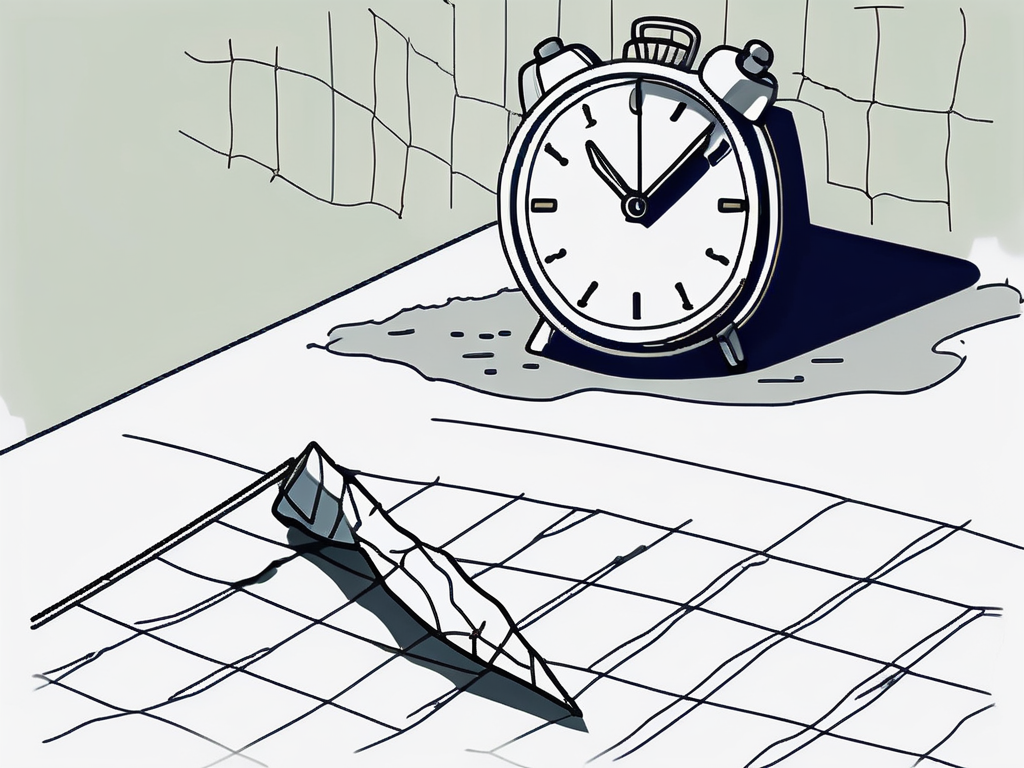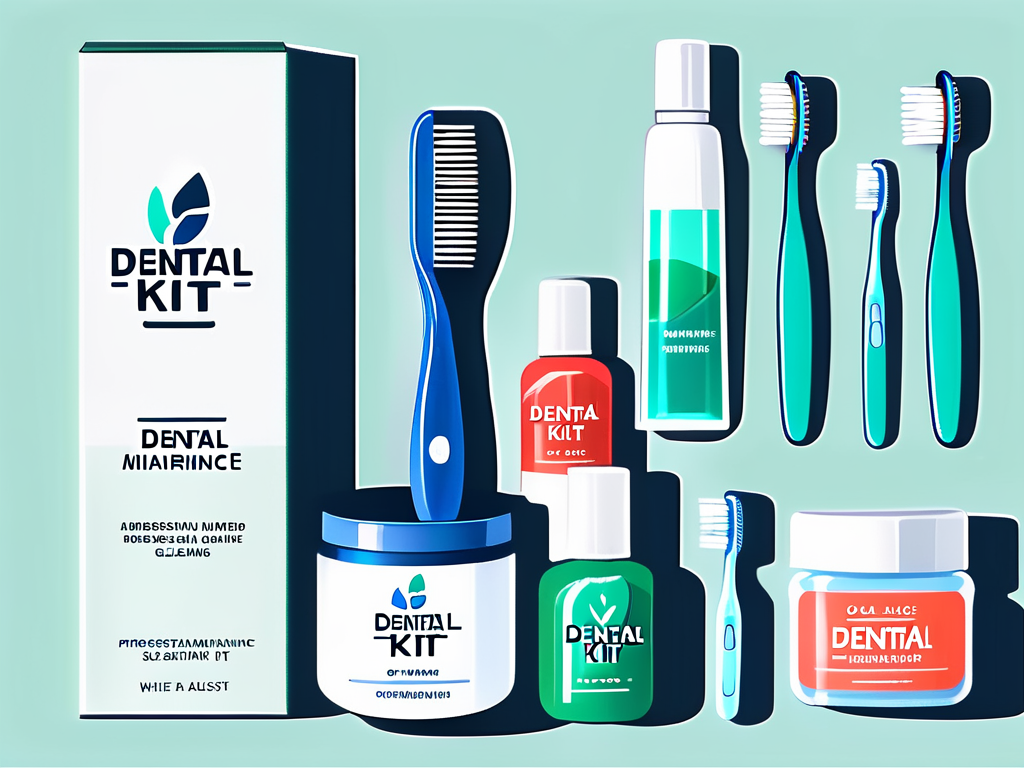Mouth guards play a crucial role in dental health, especially for those who suffer from bruxism or teeth grinding. These devices act as a protective barrier, preventing further damage to the teeth and jaw. However, just like any other dental appliance, mouth guards have a limited lifespan and need regular replacement. Understanding when and how to replace your mouth guard is essential to maintain optimal dental health. In this article, we will discuss the importance of a mouth guard, signs that indicate the need for replacement, the ideal lifespan of a mouth guard, steps to replace it, and how to maintain it for prolonged use.
Understanding the Importance of a Mouth Guard
The role of a mouth guard in dental health cannot be understated. Bruxism, the medical term for teeth grinding, is a common condition that affects millions of people worldwide. The constant grinding and clenching of teeth during sleep can lead to extensive dental damage, including worn-down enamel, chipped teeth, jaw pain, and even TMJ disorders. Mouth guards help cushion the impact of teeth grinding and provide relief from the associated symptoms.

By wearing a mouth guard, you can protect your teeth and jaw joints from excessive pressure and friction. This preventive measure not only preserves your natural teeth but also helps maintain the alignment of your bite, preventing further dental issues down the line.
The Role of a Mouth Guard in Dental Health
One of the primary functions of a mouth guard is to distribute the forces exerted during teeth grinding across the surface of the guard, rather than concentrating them on the teeth. The guard acts as a shock absorber, reducing the risk of dental damage and associated pain.
Additionally, mouth guards provide a physical barrier that prevents direct tooth-to-tooth contact. This separation reduces the friction between teeth, protecting the enamel from wearing down prematurely. When the enamel remains intact, the risk of cavities and tooth sensitivity decreases significantly.
Furthermore, wearing a mouth guard can alleviate the strain on the jaw joints by promoting a more relaxed biting position. This helps prevent the development of temporomandibular joint disorders (TMD) and reduces muscle tension in the face and neck.
Why Regular Replacement of Mouth Guards is Crucial
Although mouth guards are designed to be durable, they do not last forever. Regular replacement is necessary to ensure the effectiveness and comfort of the guard. Over time, mouth guards can accumulate wear and tear, compromising their ability to protect your teeth and jaw properly.
Below are the key signs that indicate the need for replacement:
- Visible wear and tear: Inspect your mouth guard regularly for any signs of cracks, chips, or rough edges. These can indicate that the guard is no longer providing adequate protection and should be replaced.
- Changes in fit: If your mouth guard feels loose or uncomfortable, it may be a sign that it has worn down or become distorted. A proper fit is essential for optimal effectiveness, so consider getting a new one if you experience any fit issues.
- Unpleasant odor or taste: Mouth guards can accumulate bacteria over time, leading to an unpleasant odor or taste. If you notice this, it's a good indication that your mouth guard needs to be replaced to maintain proper oral hygiene.
- Discoloration: If your mouth guard has become discolored or stained, it may be a sign of wear and tear. While discoloration alone may not affect the functionality of the guard, it can be an indication that it has reached the end of its lifespan.
Regularly replacing your mouth guard is crucial to ensure that it continues to provide the necessary protection for your teeth and jaw. Consult with your dentist to determine the appropriate replacement schedule based on your individual needs and usage.
Signs That Your Mouth Guard Needs Replacement
Physical Damage to Your Mouth Guard
Inspect your mouth guard regularly for any signs of physical damage, such as cracks, chips, or deformities. Damaged mouth guards may not fit your teeth correctly, reducing their protective capabilities. If you notice any visible damage on your mouth guard, it's time for a replacement.

It's important to note that physical damage to a mouth guard can occur due to various reasons, including accidental drops, improper storage, or prolonged usage. Even small cracks or chips in the mouth guard can compromise its structural integrity, making it less effective in protecting your teeth from the forces of bruxism. Regularly checking for signs of wear and tear can help you maintain optimal oral health and ensure the longevity of your mouth guard.
Changes in Fit and Comfort
As you wear your mouth guard night after night, it may gradually lose its snug fit. If you notice your mouth guard becoming loose, shifting in your mouth, or causing discomfort, it is likely time for a replacement. A poorly-fitting mouth guard not only compromises its effectiveness but can also disrupt your sleep and cause jaw discomfort.
Factors such as changes in your bite alignment, weight fluctuations, or even natural wear of the mouth guard material over time can contribute to a decrease in its fit and comfort. A properly fitting mouth guard is essential for providing the necessary cushioning and protection against the pressures of teeth grinding. If you find yourself constantly adjusting your mouth guard or experiencing discomfort while wearing it, consider getting a new one to ensure optimal performance and comfort.
Persistent Oral Discomfort Despite Mouth Guard Use
If you continue experiencing jaw pain, headaches, or other discomforts associated with bruxism despite consistently using your mouth guard, it may no longer be providing sufficient protection. Teeth grinding forces can wear down the material of the mouth guard, reducing its shock-absorbing ability. In such cases, replacing the mouth guard can eliminate discomfort and ensure proper protection.
The Ideal Lifespan of a Mouth Guard
Factors Affecting the Durability of a Mouth Guard
The lifespan of a mouth guard depends on several factors, including the material used, the severity of bruxism, and the individual's bite force. On average, a mouth guard can last anywhere between 1 to 5 years. However, proper maintenance and regular check-ups can help prolong its lifespan.
Average Lifespan of Different Types of Mouth Guards
Mouth guards are typically made from either soft, hard, or dual laminate materials. Soft mouth guards are the most comfortable option but may have a shorter lifespan due to their softer material. Hard mouth guards, made from rigid acrylic, are more durable and longer-lasting. Dual laminate mouth guards combine the advantages of both soft and hard materials, offering both comfort and longevity.
While a soft mouth guard may last around 6 months to 2 years, hard and dual laminate guards can typically last between 2 to 5 years. It's important to note that these timeframes are approximate and can vary based on individual usage patterns and the severity of teeth grinding.
Steps to Replace Your Mouth Guard
Consulting Your Dentist
Before replacing your mouth guard, it's critical to consult your dentist. They can assess the condition of your current mouth guard and provide guidance on the most suitable replacement options based on your needs and preferences.
Choosing the Right Mouth Guard
Once you have determined the need for replacement, your dentist can help you select a new mouth guard. They will consider factors such as your bite, jaw alignment, the severity of bruxism, and your comfort preferences. Custom-fitted mouth guards are often recommended as they provide the best fit and optimal protection.
Proper Fitting and Adjustment
When you receive your new mouth guard, your dentist will ensure it fits correctly. Proper fitting is essential to maximize comfort and protection. In some cases, adjustments may be necessary to achieve an optimal fit. Follow your dentist's instructions carefully to ensure the mouth guard is adjusted correctly.
Maintaining Your Mouth Guard to Prolong Its Life
Cleaning and Storing Your Mouth Guard
To prolong the lifespan of your mouth guard, it is essential to maintain proper hygiene. Clean your mouth guard daily using a mild soap or non-abrasive toothpaste. Use a soft-bristled toothbrush to gently remove any debris. Rinse thoroughly with water before storing it in a well-ventilated container.

Avoid exposing your mouth guard to excessive heat, such as hot water or direct sunlight, as it can deform the material. Additionally, keep your mouth guard away from pets, as they may mistake it for a chew toy and cause damage.
Regular Check-ups and Adjustments
Make it a habit to schedule regular dental check-ups, during which your dentist can assess the condition of your mouth guard and make any necessary adjustments. Regular professional care ensures that your mouth guard remains effective and comfortable.
Avoiding Common Mouth Guard Damages
In addition to regular maintenance, there are some preventive measures you can take to extend the life of your mouth guard:
- Avoid grinding or clenching your teeth during the day, as this can put unnecessary strain on the guard.
- Avoid exposing your mouth guard to harsh chemicals or alcohol-based mouthwashes that can deteriorate the material.
- Store your mouth guard in a safe place, away from children or pets who may accidentally damage it.
- Avoid chewing on hard or sticky foods while wearing your mouth guard, as it can weaken the material and compromise its protective function.
In conclusion, mouth guards are essential for protecting your teeth and jaw from the damaging effects of bruxism. Understanding the signs that indicate the need for replacement, the ideal lifespan of a mouth guard, and the steps to replace it are crucial to maintain optimal dental health. By following proper maintenance practices and consulting your dentist regularly, you can ensure the longevity and effectiveness of your mouth guard. Remember, when it comes to your dental health, proactive care and timely replacement are key.













